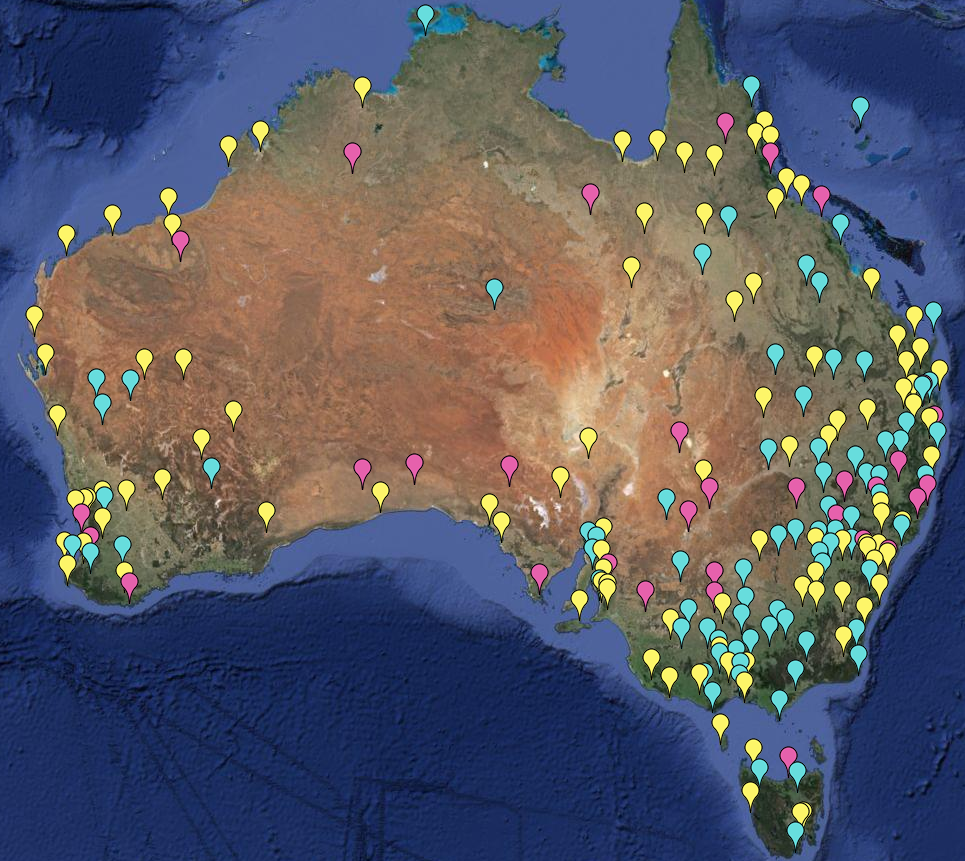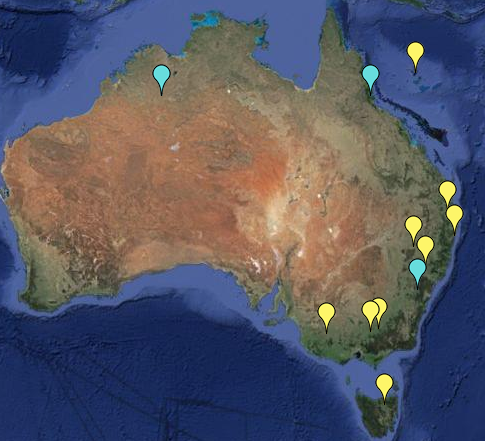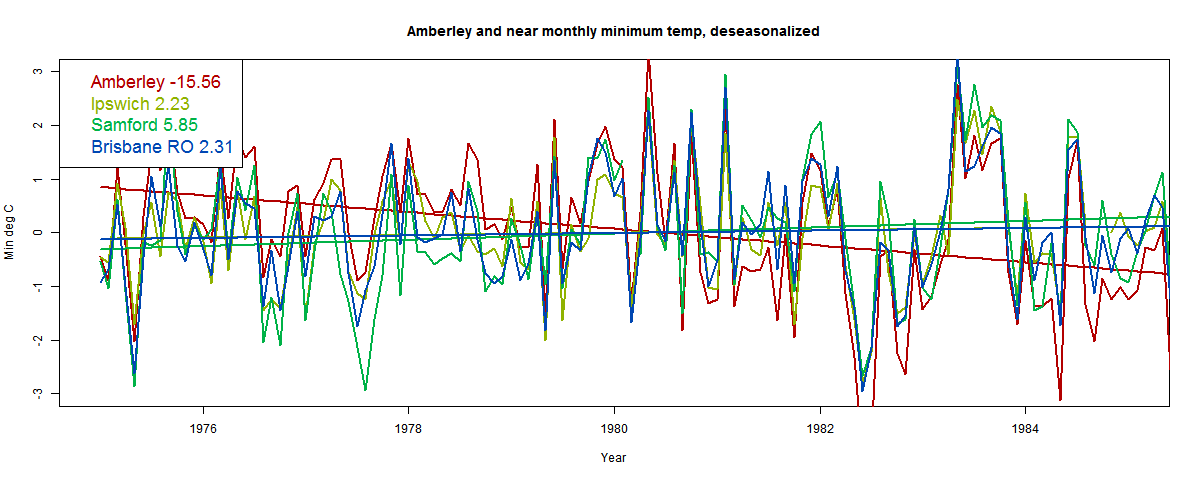For over three years I have now been using TempLS to calculate every month an average, based on newly announced values of GHCN V3 unadjusted and ERSST. I aim to get the new index out before the majors, to test its predictive skill. I then write up a comparison with GISS, which is usually the next to come out. I also track them with graphs and numbers at the Latest Data page.
In December 2012 I wrote a review of the first seventeen months, and how well other indices had correlated with TempLS and with each other. TempLS fitted in to the general picture quite well, but had been particularly close to the NOAA index. This is not surprising because I use GHCN and ERSST, as does NOAA, although I use the unadjusted GHCN.
I have been thinking of updating this review, but in the meantime I had noticed something odd. The NOAA index and TempLS have been coming very close indeed (both curves bold):

It may be clearer in this plot of differences from TempLS:

It's a bit surprising. I don't use adjustments, I don't use a land mask (as NOAA does). I don't strictly use a grid at all, though I use grid-based area weighting. And of course, I don't use a fixed anomaly base.
The interesting thing is the recent extra convergence. Interesting because I had found that the chief issue with unadjusted GHCN wasn't the lack of homogenisation, but just of ordinary quality control. I described this sad story here. So I think it is just my added QC that has brought them into line. And TempLS virtually duplicates the NCDC calculation.
I should add that what I have plotted here is not exactly TempLS as predicted, but from the latest run. But changes are small; you can check from one post to the next what it was at first calc, and what a month later.
























